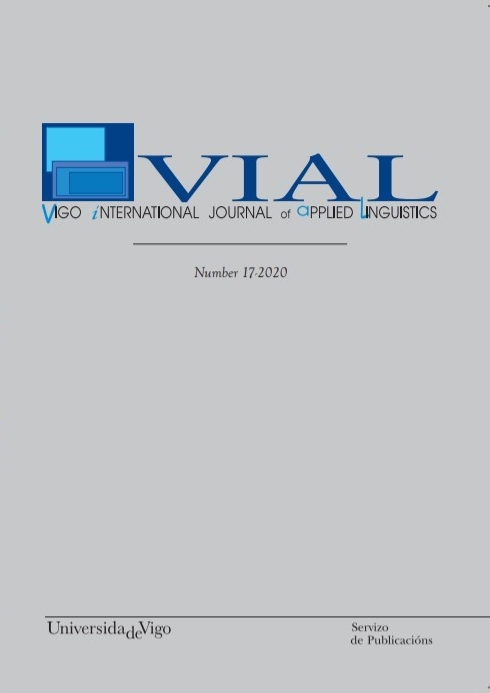On the translation of boundary-crossing events: Evidence from an experiment with German and Spanish translation students
DOI:
https://doi.org/10.35869/vial.v0i17.1466Palabras clave:
Motion events, boundary-crossing, Manner, Thinking-for-translating, translation studentsResumo
This paper deals with the translation of motion events between typologically similar and different languages, a research field which has been generally approached from the Thinking-for-translating hypothesis. Here we present a student-based experiment focused on the translation of boundary-crossing events (specifically: ‘manner verb + into + a bounded space’) from English (a satellite-framed language) into German (a satellite-framed language) and Spanish (a verb-framed language). The aim is to investigate whether translation students interpret correctly and translate both the boundary-crossing and the Manner information. For this purpose, a group of German and Spanish translation students were asked to translate a series of excerpts from English narrative texts into their respective mother tongues. The results suggest that the way translation students deal with these phenomena is mainly influenced by the lexicalization patterns of their mother tongues, but the nature of the event itself and the context also seem to be key in some cases.
Descargas
Descargas
Publicada
Número
Sección
Licenza
Libros UVigo é o portal de publicación en acceso aberto das revistas da Universidade de Vigo. A posta a disposición e comunicación pública das obras no portal efectúase baixo licenzas Creative Commons (CC).
Para cuestións de responsabilidades, propiedade intelectual e protección de datos consulte o aviso legal da Universidade de Vigo.



